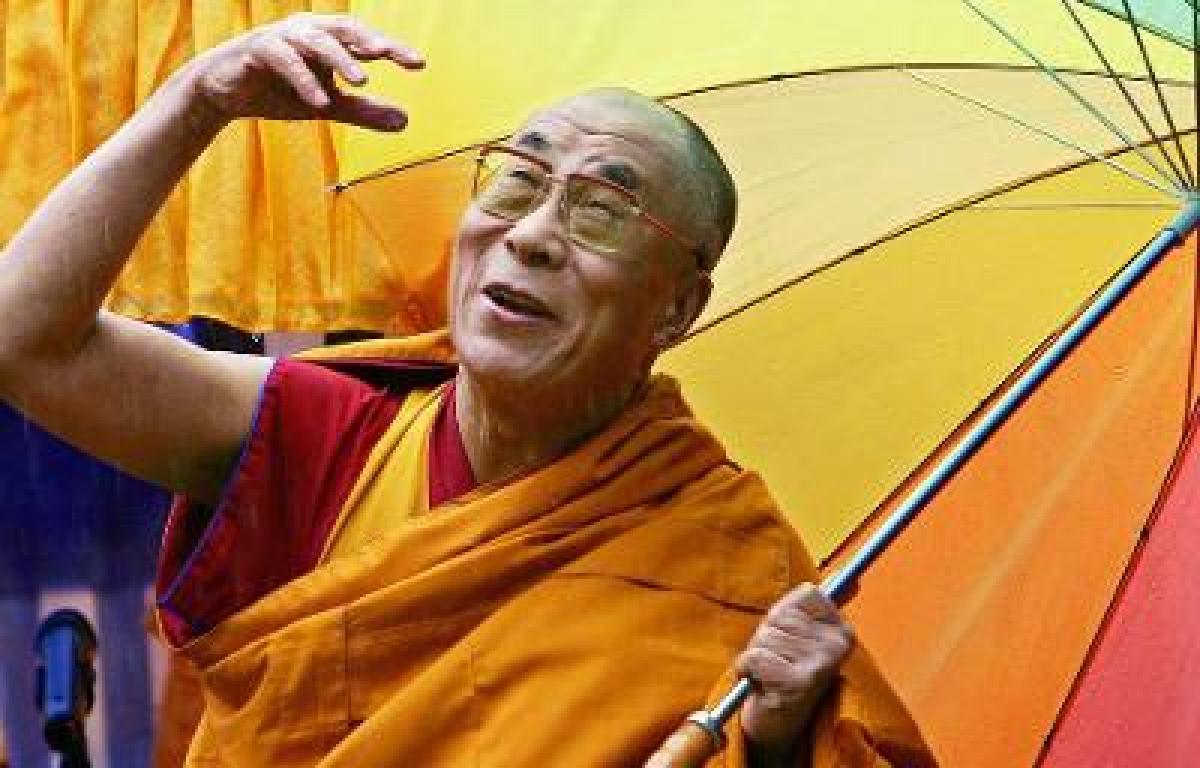Live
- Geeta Jayanti Celebrations Organized at Maldakal Thimmappa Swamy Temple
- Indiramma Housing Scheme Survey Reviewed by District Collector
- Government Committed to Resolving ASHA Workers' Issues: Minister Damodar Raja Narasimha
- 'Refrain from interfering in municipal polls': Union Minister Ravneet Bittu tells Punjab officials
- SC grants anticipatory bail to accused in POCSO case
- Rising Rajasthan Summit to return in 2026, says CM Sharma
- Kerala HC issues contempt notice to official over elephant regulation violations
- 3rd ODI: Have to learn to take things till the end, says Harmanpreet after India's 3-0 defeat to Australia
- Brook is probably the best Test batter in the world right now, says Ponting
- Congress to fight alone in Delhi, Alok Sharma labels AAP a 'distraction'
Just In

Tibetan Prime Minister-in-exile Lobsang Sangay, who will take the oath of office for his second consecutive term here on Friday, is hopeful that sooner or later China will change for the better.
Tibetan Prime Minister-in-exile Lobsang Sangay, who will take the oath of office for his second consecutive term here on Friday, is hopeful that sooner or later China will change for the better.
He's believes in Tibetan spiritual leader the Dalai Lama's dictum: "Hope for the better, but prepare for the worst too".
"The issue of the dialogue between the envoys of the Dalai Lama and Chinese representatives is delicate and sensitive," Sangay told IANS in an interview here.
"However, it's clear that there is no lack of effort on our part on restarting the dialogue under the guidance of His Holiness the Dalai Lama," said the 48-year-old Harvard-educated elected head of the Central Tibetan Administration.
He replied in affirmative when asked: Are you expecting some changes in the mindset of the Chinese over granting greater autonomy for Tibetans?
"I remain hopeful that sooner or later, China will change for the better."
Sangay was re-elected on April 27 after defeating his only rival, Penpa Tsering. He polled about 57 percent of the 58,740 votes cast across the globe on March 20.
It was the second election since the Dalai Lama stepped down as head of the government-in-exile in 2011.
Since then, the significance of the prime minister's post has gone up.
About on the ongoing deadlock over talks between the Dalai Lama's envoys and the Chinese since January 2010, Sangay said: "It's evident that we must put maximum efforts in achieving genuine autonomy for all Tibetans based on the middle-way approach".
"However, as advised by His Holiness the Dalai Lama time and again, we must hope for the better but prepare for the worst. We may have to continue our struggle for many years. Therefore, it's critical that we are able to sustain our cause"
A confidant Sangay believes in dialogue.
"We remain committed to the middle-way approach and reiterate that dialogue is the most realistic approach and the only way to find a mutually beneficial solution to the Tibet issue."
"The middle-way approach neither seeks separation from the People's Republic of China nor high degree of autonomy but genuine autonomy for all Tibetan people under a single administration," he said.
"The Chinese leadership should adopt a policy that keeps up with the ground reality," added Sangay, who did his early education from a refugee school in Darjeeling and studied law from Delhi University before moving to Harvard for his doctorate.
His priorities in his second and last five-year stint would be to resolve the issue of Tibet, besides making efforts to introduce new projects wherever and whenever necessary to improve political and administrative efficiency.
Asked about the possible shape and size of his new Kashag (cabinet), he replied diplomatically, saying the most suitable candidates would be inducted, irrespective of their experience or gender.
According to him, the coming 15th cabinet will also continue the many tasks started by the previous cabinet based on the founding principles of unity, innovation and self-reliance.
Sangay reiterated: "We are ready to have dialogue with China anytime and anywhere."
In his first stint, Sangay toured the globe trying to build up support for the Tibetan cause.
European Council President Donald Tusk told Chinese premier Xi Jinping during a press conference last year that the Tibet issue should be resolved through dialogue.
In 2011, the White House released a press statement after President Barack Obama met with the Dalai Lama, applauding the middle-way approach.
The Dalai Lama has lived in India since fleeing his homeland in 1959. The Tibetan administration in exile is based in this northern Indian hill town.

© 2024 Hyderabad Media House Limited/The Hans India. All rights reserved. Powered by hocalwire.com







